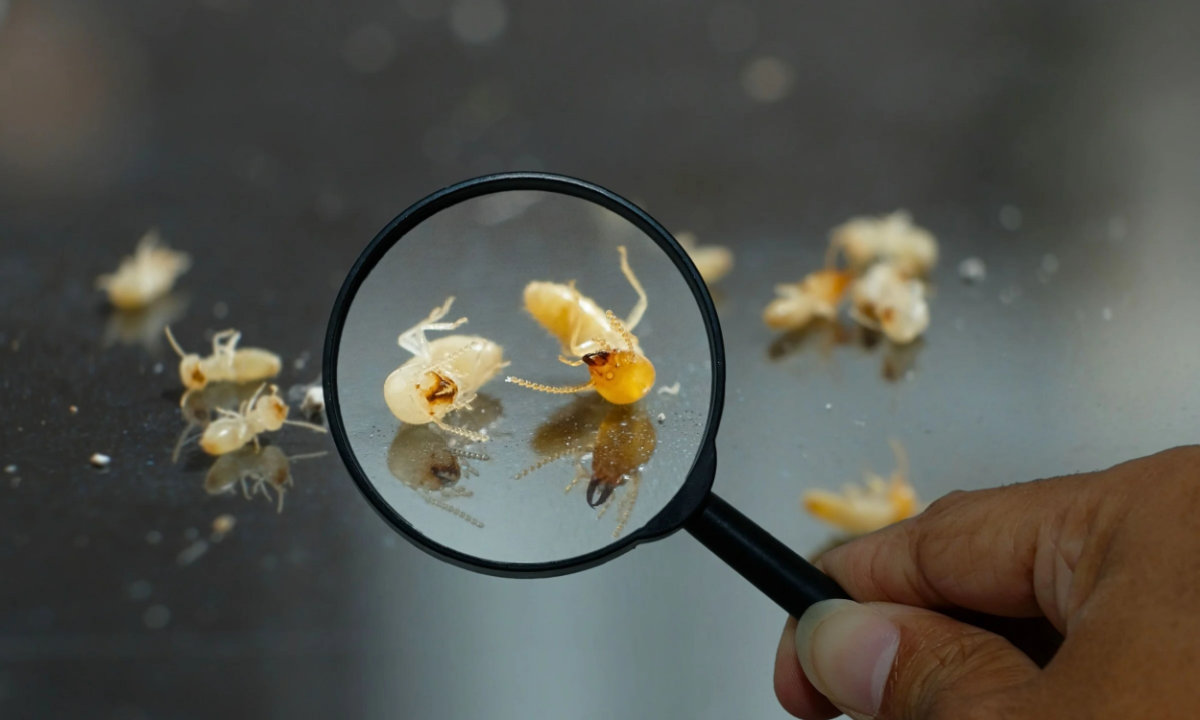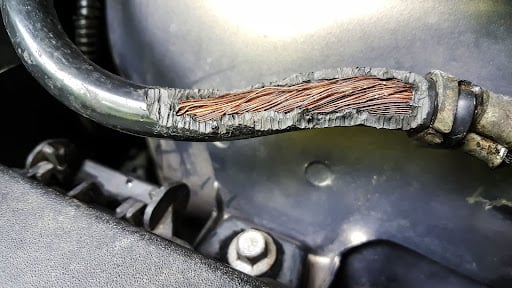Out of all of the common pests found in homes across the United States, stink bugs are some of the most annoying. Most Jersey residents are familiar with the Brown Marmorated Stink Bug, which loves to hide out over winter inside your house.
While stink bugs are relatively harmless to humans and pets, the foul odor they release when scared or killed can have many homeowners holding their noses and running out of the room.
Stink bugs are also known to invade in large numbers, making them particularly bothersome during the warmer months when they are the most active. If you find yourself dealing with these unwelcomed household pests, here are 7 DIY tips for getting rid of stink bugs once and for all.Request a Free, No-Obligation Quote
Request a Free, No-Obligation Quote
Identifying Stink Bugs
Stink bugs can easily be identified by their unique shape and the distinct, foul odor they release when crushed.
Stink bugs have shield-shaped bodies and are typically brown in color, often bearing a speckled pattern. They also have smooth, rounded shoulders and light and dark brown bands on their antennae. These insects can reach nearly 2 centimeters in length, making them almost as wide as long.
You may also notice that stink bugs will often stand still for long periods of time, giving the impression that they are dead. This is a state known as diapause, which occurs when they cannot find a food source.
Though stink bugs typically come out during summer, they can also survive the winter. Therefore, understanding how to get rid of stink bugs is important for year-round protection.
7 Tips to Get Rid of Stink Bugs
1. Homemade Stink Bug Traps
There are several homemade stink bug traps that can effectively eliminate these pests, with one of the most popular being the foil pan method. To try this method, simply fill a foil roasting pan with water and dish soap and shine a small desk lamp onto it. The light will draw the stink bugs to the trap, and once they enter, they will not be able to escape.
2. Natural Stink Bug Repellents
Stink bugs are known to dislike certain natural smells, many of which could be found in essential oil form. Essential oils like spearmint, lemongrass, and ylang-ylang have been shown to keep stink bugs away, so diffusing these oils around your home or mixing them with water in a spray bottle can effectively ward off these pests.
3. Eliminate Food Sources
Stink bugs are attracted to moisture and food scraps, so eliminating these possible food sources from your home can help keep stink bugs at bay. One of the biggest ways to do this is by storing food in airtight containers and disposing of garbage promptly. It may also be a good idea to purchase an airtight garbage can, as stink bugs will be less likely to smell your garbage when it is properly stored.
4. Reduce Moisture
As mentioned earlier, stink bugs are drawn to moisture, so be sure to watch for any leaky faucets or pipes in your home. You should also avoid having a lot of dirty dishes in the sink, and be sure to drain the water from your sink or bathtub immediately after use to prevent stink bugs from hanging around.
5. Seal Cracks
Stink bugs can make their way into your home through cracks and crevices in your walls, so it may be a good idea to inspect your walls, windows, and doorways for any possible entryways. Using caulk to seal any cracks found in your home can be extremely effective in preventing these pests from invading your space.
6. Insecticidal Soaps and Oils
Many people look to insecticides and oils to keep stink bugs at bay. Neem oil for stink bugs is a popular option, as it is a more natural solution and kills stink bugs by interfering with their behavior. When stink bugs ingest neem oil, they are tricked into feeling that they are no longer hungry and will eventually die. Other stronger insecticides are also commonly used, but it is important to note that these harsh chemicals should only be applied by a pest control professional to ensure the problem is handled safely and effectively.
7. Landscape
Keeping the outside of your home neat and well-landscaped is important for keeping all kinds of pests out of the house, including stink bugs. During the summer months, regularly cut the grass and pull any stray weeds for the best chance of protecting your home from intruders. If there are trees near your house, trimming the branches and cleaning out your gutters can also effectively reduce your chances of seeing stink bugs in your home.Request a Free, No-Obligation Quote
Request a Free, No-Obligation Quote
Should I Squish Stink Bugs?
If you see a stink bug in your home, do not crush it. Doing so will release the foul odor activated when the insects are frightened or killed, and the smell could be overpowering. Instead, opt for one of the methods mentioned above to safely kill stink bugs without subjecting you and your loved ones to this pest’s offensive odor.
While DIY home pest control is effective against stink bugs on most occasions, don’t hesitate to reach out to a qualified stink bug exterminator for help.
FAQs
Can stink bugs harm humans or pets?
While stink bugs may look intimidating, these insects are generally harmless to humans and pets. Besides their offensive odor, most species of stink bugs cannot bite or sting and are not poisonous if your cat or dog accidentally ingests one.
How can stink bugs damage crops and gardens?
Stink bugs can be extremely damaging to crops and gardens, as these pests are known to pierce through plant leaves, buds, and fruit and suck the sap or juice from them. This can stunt plant growth and create holes in fruits and vegetables, sometimes even killing seedlings, depending on how much damage was done.
Can stink bugs trigger asthma or allergies?
Stink bugs have been known to trigger asthma or allergies in individuals sensitive to the bugs’ odor. This reaction can be similar to that of a cockroach or beetle allergy, so it is important to take care of a stink bug infestation before it gets out of control.
What are some natural predators of stink bugs?
Some of the most common natural predators of stink bugs include spiders, bats, birds, and assassin bugs. Predatory stink bugs are also known to feed on their less harmful counterparts, the plant-feeding stink bugs.



